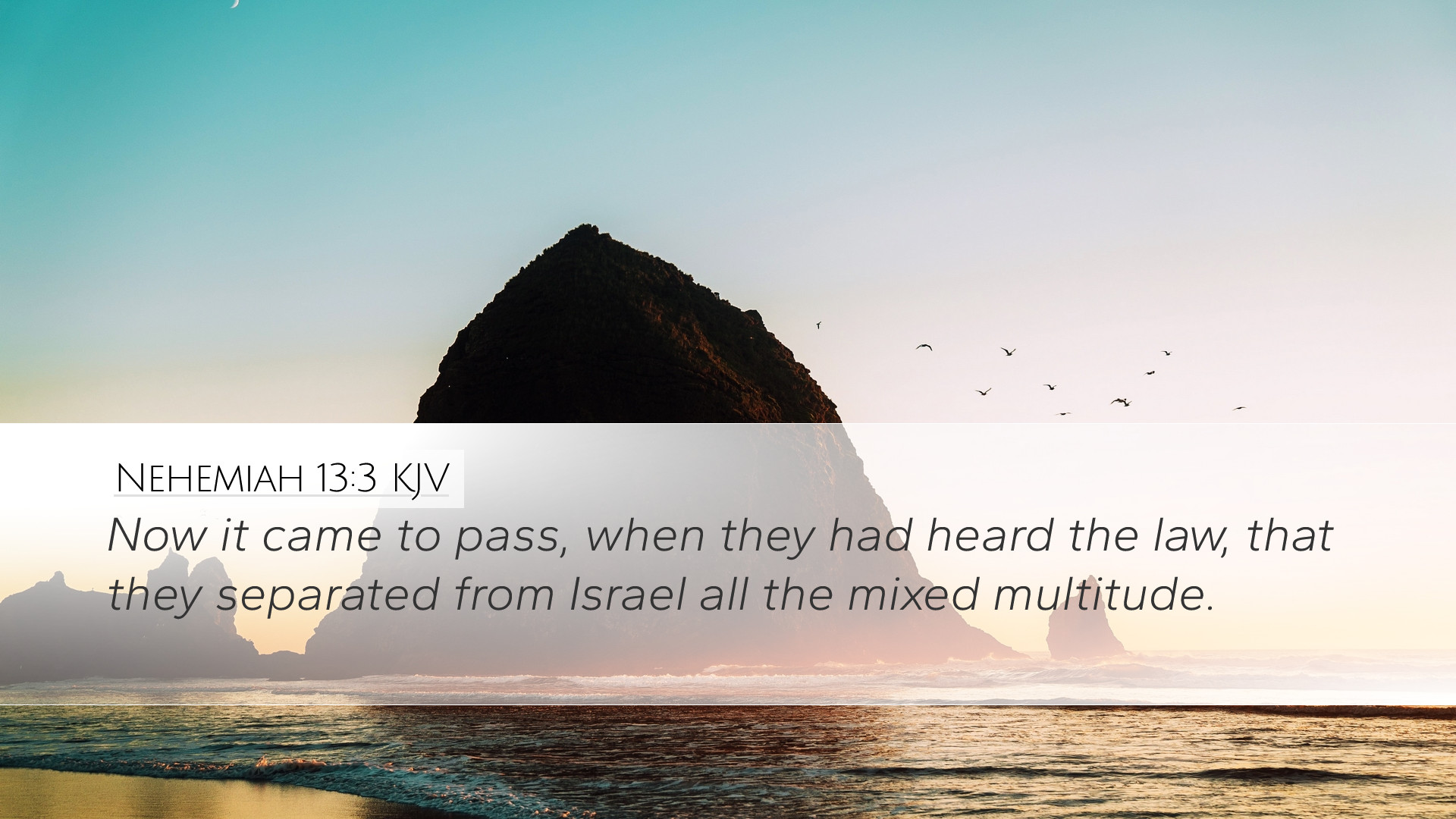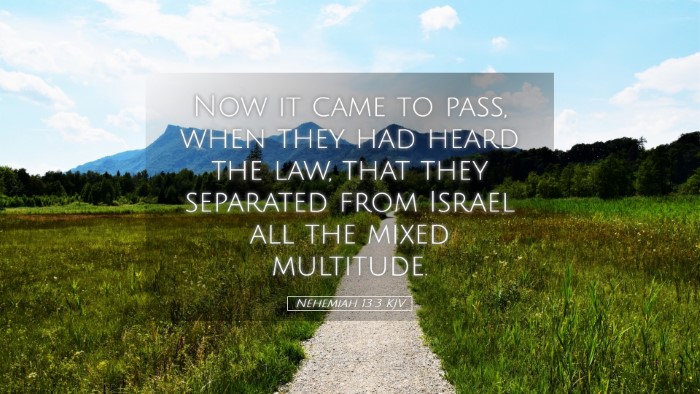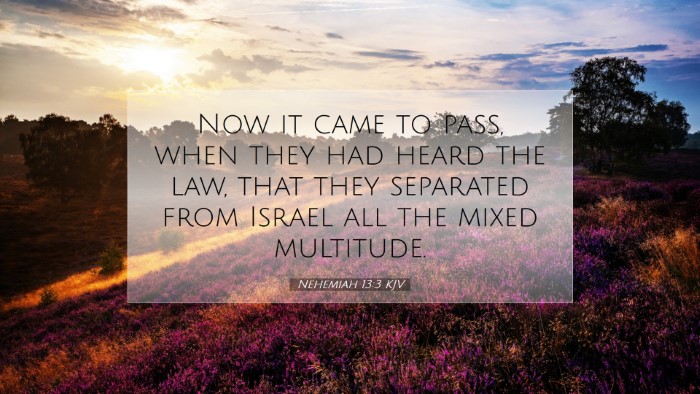Commentary on Nehemiah 13:3
Nehemiah 13:3 states: "Now it came to pass, when they had heard the law, that they separated from Israel all the mixed multitude." This verse encapsulates a significant moment in the post-exilic restoration of Israel. The separation from the mixed multitude reflects key themes of holiness, obedience, and the need for maintaining a distinct identity as the people of God.
Contextual Background
The events of Nehemiah 13 occur after the walls of Jerusalem have been rebuilt, and the people have returned from exile. The reading of the Law in previous chapters highlights the people's recommitment to God and His covenant. The mixed multitude mentioned in this verse refers primarily to those who were not of pure Israelite descent, possibly including various peoples who had settled in the region.
The Importance of the Law
Upon hearing the Law, the people were convicted and compelled to act in accordance with its stipulations. The Law served as a guide for their conduct and identity. Pastors and theologians can draw from this the understanding that the Word of God should lead to transformation and action in the lives of believers.
- Spiritual Conviction: The reading of the Law generated a profound response among the people, highlighting the transformative power of Scripture.
- Personal and Corporate Application: The reaction was not only individual but involved the community, demonstrating their collective accountability to God’s instructions.
Separation and Holiness
To "separate from Israel all the mixed multitude" signifies a return to the call for holiness that God desired from His people. The commentary by Matthew Henry emphasizes the need for the Church today to seek purity and distinctiveness from surrounding influences contrary to biblical values.
Insights from Commentators
- Matthew Henry: He notes that this act of separation was necessary to protect the sanctity of the covenant community and prevent the dilution of their commitment to God’s commands.
- Albert Barnes: Barnes sheds light on the mixed multitude's implications, which may have led to syncretism—blending Israel’s worship with idolatrous practices. He asserts that such compromises were detrimental to the health of the covenant community.
- Adam Clarke: Clarke suggests that the mixed multitude included those who had intermarried with the Israelites, leading to cultural and religious compromise. He argues that this separation was an act of divine restoration, ensuring the authenticity of the worship and life of the community.
Theological Implications
The act of separating from the mixed multitude brings forth several theological implications:
- Covenant Identity: The separation underscores the importance of maintaining a unique identity as a covenant people chosen by God.
- Worship and Standards: It affirms that true worship involves aligning one’s life and community with God’s standards as revealed in Scripture.
- Community Integrity: The health of the community hinges on its ability to remain faithful to the values and directives given by God, as exemplified through the actions taken after the Law was read.
Practical Application for Today
For contemporary believers, Nehemiah 13:3 serves as a powerful reminder of the need for discernment regarding influences that can compromise their faith. Pastors and Bible scholars are prompted to encourage the Church to uphold scriptural integrity amidst a pluralistic society.
- Commitment to Scripture: Discipleship must be rooted in a robust engagement with Scripture, leading to discernment and action.
- Maintaining Church Purity: Church leaders are challenged to ensure that their congregations remain true to the gospel, avoiding compromises with secular ideologies.
- Encouraging Holiness: The community of faith should foster an environment where holiness is pursued—it is through such a pursuit that they can reflect the character of God to the world.
Conclusion
Nehemiah 13:3 stands as a testament to the seriousness with which the Israelites took their covenant relationship with God. The separation from the mixed multitude was more than a physical action; it was a profound expression of spiritual commitment. As believers reflect on this passage, it calls for introspection regarding what influences they allow into their lives and how they can remain faithful to God's calling to holiness and righteousness.


